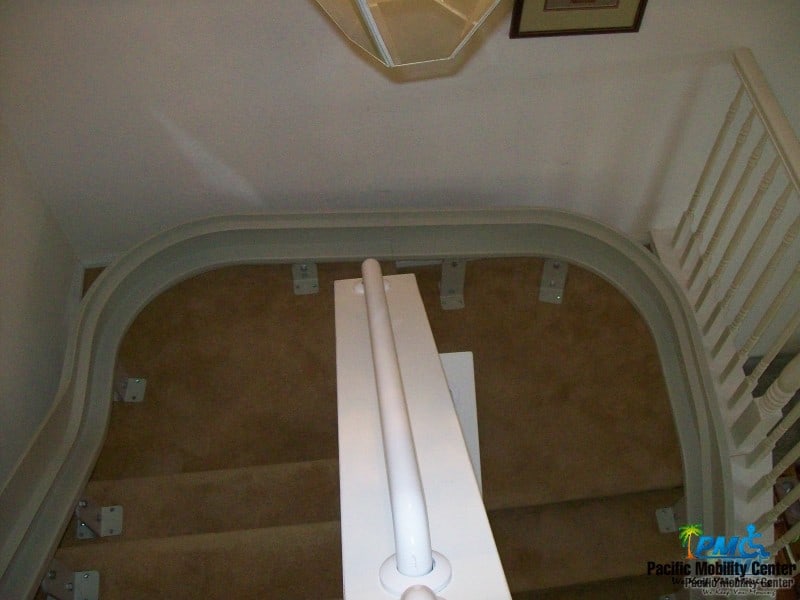Poor balance may be an indication of upcoming mobility issues and how you can help includes reaching out to mobility experts about aids, equipment, and strategies to prevent injury.
Problems with coordination and balance are common among seniors over age 65, and contribute to the 25% of falls endured by this demographic annually. Poor balance should not be ignored; it could be a sign of an underlying and very-serious medical condition. It is pragmatic to be proactive when it comes to implementing mobility devices for seniors that demonstrate issues with balance before accidental injury occurs.
Poor balance may be an indication of upcoming mobility issues; how you can help:
Don’t overlook issues with balance as it could be a sign of more serious mobility problems to come. Be proactive about finding ways to circumvent poor coordination, while also looking for reasons why it is manifesting.
Some things you can do to help a senior demonstrating balance issues include:
Fall-risk assessment
It is important for a licensed provider to perform a fall-risk assessment on any senior during routine appointments to identify balance issues. Furthermore, this can also help to tease-out the contributing factors, which might include an infection or certain medications. These risk assessments may also recognize the need for specialized treatment options, such as occupational or physical therapy, to assist in helping the patient maintain coordination and prevent falls.
Install devices
Don’t wait for an accident to install devices that aid in mobility and access for seniors. September is National Preparedness Month, which is the perfect time to install equipment that could prevent a fall or improve access for individuals, especially over age 65.
Utilize aids
Make use of aids that help with balance. From grab-bars to reaching tools and canes to walkers, these aids can come in-handy when seniors lose their balance or go about their daily routine. Doctors can prescribe these devices, or you may simply pay for installation to make the home a safer, more-accessible dwelling.
Build core strength
One of the reasons why it is important for seniors to engage in physical activity daily is to maintain and build core strength. Since protein is the building-block of lean muscle mass, it is integral to ensure a diet rich with protein every day. Consider exercise groups, a personal trainer, and dietary supplements to maintain core body strength throughout the lifespan.
Implement equipment
Look to the experts for professional installation of equipment that maintains the senior’s autonomy and independence in the home. Don’t scrimp on these devices; buying second-hand equipment from unqualified sellers could actually perpetuate an accident or injury- rather than prevent one.
Talk to Pacific Mobility about proactive measures for poor balance:
Don’t try to go it alone. Work with sellers and companies that can provide for your future needs, while offering installation and service after the sale. Considering options that may not be warranted now could prevent an accident in the future. No price-tag can be put on the feeling of freedom that comes from mobility; check out options that will provide this to your senior:
Lifts
Lifts do just that: they lift the patient to better-access around the home. These are not reserved for those individuals in chairs or scooters, but to anyone who wants to maintain full-access to their surroundings. Indoors and out, lifts can be life-changing for many. Ask about:
- stairlifts.
- Vehicle lifts.
- Porch lifts.
- Ceiling lifts.
Door-openers
Reaching out to open or close a door may be all it takes to endure a nasty fall. Prevent this from becoming a reality with automatic door-openers that allow the user to maintain free hands and balance during their passage. Again, professional installation is key in satisfaction and optimal utility.
Shower aids
Activities of daily living (ADLs) include bathing and showering, which can pose risks for seniors with poor balance. Since the bathroom is a key room in any home, make sure that it is safe and accessible with shower aids, grab-bars, and other modifications to fit the residents. Shower aids prevent falls, slips, and injuries, and could improve the user’s sense of autonomy while offering support during use.
Customized needs
No two seniors’ needs are the same; for this reason, equipment, devices, and aids should be customized to fit the needs and distinctions of the user. Comprehensive assessments will identify areas that the senior could benefit from assistance and prioritize the right approach to take. Be wary of any company that offers to sell you mobility equipment without a thorough assessment first.
Call now and take action with a needs assessment and mobility aids to prevent injury. This, in turn, can preserve autonomy and maintain independence for seniors. Consider how you can address poor balance and avoid injuries that could compromise quality of life for those affected.
President, Husband, Father, Grandfather Graduate of UC Davis- Bio Sci Major- Go Aggies! Jeff has extensive experience in all of Pacific Mobility’s products and services, and specializes in accessibility products as well as stairlifts, ceiling lifts and custom wheel chairs. His hobbies include spending time with family, gardening, mountain biking, exercising and off road motorcycle riding.
24 years as Owner/President of Pacific Mobility Center – selling, installing, and servicing stairlifts, porch lifts, ceiling lifts, pool lifts, handicap ramping, specialty wheelchairs, scooters, power wheel chairs, and other power mobility devices
Certified Environmental Access Consultant since 2008
Licensed General Contractor since 1998
Certified Aging in Place Specialist since 2016
Board Member for Home Access Professionals
Member of Association of Members of the Accessibility Equipment Industry (AEMA)




